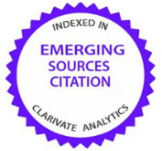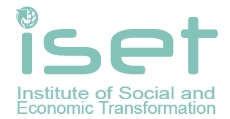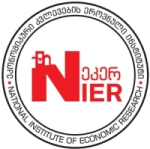Organizational management with the crisis of the Covid-19 pandemic
Abstract
Introduction. During the Covid-19 pandemic, a crisis unmatched that will have significant negative consequences and encompass the social, economic and environmental environment and its consequences affect organizations in both the private and public sectors. The Covid-19 pandemic has a significant impact on the population and their lives, and therefore on their organizational effectiveness in overcoming the crisis. The crisis has caused a number of uncertainties and confusion related to workers' risks and the adoption of measures to overcome them. In the face of uncertainty, it is even more difficult to manage organizations that do not have properly developed, recognizable and competent crisis management and communication.
Aim and tasks. The purpose of the study was to highlight the pandemic-induced problems and to contribute to the adoption of measures related to the functioning of the organizations. Additionally, the aim was also to establish the connection between the introduction of new forms of work and the shortage of the staff. Main goal of this research was to analyse functioning of the crisis management in selected organizations during the Covid-19 pandemic.
Results. The results of the study conducted via an online questionnaire showed that crisis management and communication are adequately adopted in the organizations in question, but shortcomings were nevertheless disclosed. They are a consequence of the specificity of the crisis and the lack of knowledge of how to operate under such conditions. Participants of the survey estimated that the pandemic raised thus far investigated issues and that crisis management and communication in the organization was better trained to operate and take crisis measures in cases other than the epidemic.
Conclusions. The article proposes an analysis of the entire operation of management during the pandemic, a review of all organizational acts in the field of crisis management, their modernization, and additional training and education in crisis management by exchanging practices of other organizations. However, the state, as the holder of measures during the pandemic, must adopt appropriate legal acts, which will be the base for organizations in the economy and the public sector to take appropriate measures. Organizational management during the pandemic must be flexible, innovative and focused on a healthy work environment.
Keywords:
Covid-19, crisis management, crisis communication, knowledge.References
2. Coombs, T. (2012.), Ongoing Crisis Communications, Los Angeles: Sage Publications
3. Dubrovski, D. (2004). Krizni management in prenova podjetja. Koper: Fakulteta za management.
4. Novak, B, (2000). Krizno komuniciranje in upravljanje nevarnosti. Priročnik za krizne odnose z javnostmi v praksi. Gospodarski vestnik, Zbirka Manager, Ljubljana
5. Coombs, W. Timothy (2001). Ongoing crisis communication: Planing, managin, and responding. Sage Publications, California
6. Dubrovski, D. (2011). Razsežnosti kriznega managementa. Celje: Mednarodna fakulteta za družbene in poslovne študije.
7. Brändström, A., & Malešič, M. (2004). Crisis management in Slovenia: comparative perspectives. Stockholm: Swedish National Defence College.
8. Osmanagić-Bedenik, N. (2003.), Kriza kao šansa. Zagreb: Školska knjiga
9. Dubrovski, Dr. (1998): Krizni management in prestrukturiranje podjetja: Visoka šola za management v Kopru
10. Končina, M., & Mirtič, K. (1999). Kako rešiti podjetje iz krize. Ljubljana: Gospodarski vestnik.
11. Tafra-Vlahović, M. (2011.), Upravljanje krizom: procjene, planovi, komunikacija. Zaprešić: Visoka škola za poslovanje i upravljanje „Baltazar Adam Krčelić“
12. Malešič, M., Bašić-Hrvatin, S. &Polič, M. (2006). Komuniciranje v krizi. Ljubljana: Fakulteta za družbene vede.
13. Nohrstedt, D., & Stern, E. (1999). Conclusion: Patterns and Problems in Estonian Crisis Management. Crisis Management in Estonia: Case Studies and Comparative Perspectives, 3, 294-315.
14. Koval, V., Polyezhayev, Y., & Bezkhlibna, A. (2018). Communicative competences in enhancing of regional competitiveness in the labour market. Baltic Journal of Economic Studies, 4(5), 105-113. https://doi.org/10.30525/2256-0742/2018-4-5-105-113
15. Lerbinger, O. (1997) The crisis manager: facing risk and responsibility. Lawrence Erlbaum Associates, New Jersey.
16. Simon, H. (2009). Kriza – kako uspešno poslovati v spremenjenih razmerah: 33 učinkovitih rešitev za vašo gospodarsko družbo. Planet GV, Ljubljana.
17. Kajzer, Š. (1998). Krizni management. Naše gospodarstvo.
If the article is accepted for publication in the journal «Economics. Ecology. Socium» the author must sign an agreementon transfer of copyright. The agreement is sent to the postal (original) or e-mail address (scanned copy) of the journal editions.






















